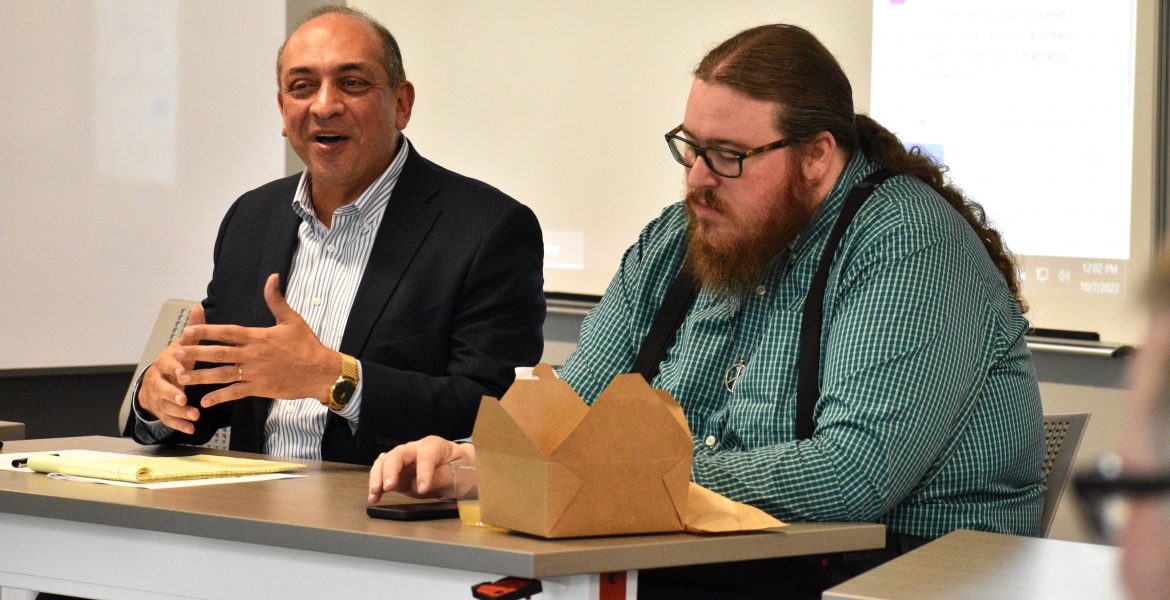The Faculty Senate at Texas A&M University-San Antonio prioritized class optimization and faculty pay at its Feb. 3 meeting.
Provost Mohamed Abdelrahman said he was working on “optimizing” class sizes, taking a harder look at course enrollment and being “budget-aware.” Abdelrahman said this was because of the “mismatch” between A&M-San Antonio’s expenditures and budget.
Abdelrahman told the senate that the University Resource Committee, which reviews “all strategic plans requiring financial resources,” will discuss the possibility of increasing class sizes and establishing a sustainable budget.
“I am not happy about deficit spending,” Abdelrahman said.
Ruby Daniels, an instructional assistant marketing professor and a member of the Faculty Compensation Committee, presented the committee’s findings and recommendation for faculty pay to the senate.
The president’s cabinet allocated $200,000 for market adjustments of faculty pay to take effect in spring after a compensation study conducted in the fall.
The two key recommendations Daniels presented to the senate from the committee were:
- Allocate roughly $95,000 to bring all faculty currently below the minimum salary to the minimum amount revealed by the study, which examined faculty salaries at institutions across the state of Texas.
- Distribute the remaining amount to full-time faculty with nine-month base salaries of $90,000 or less.
Daniels noted that the faculty compensation committee did not have access to the full, final compensation study report— only the summarized research that administration provided them.
Daniels also emphasized she was presenting only the committee’s recommendations.
“That’s separate from how those recommendations will be implemented,” Daniels said. “I really can’t speak to the timing or the dates or questions about how it’s going to be implemented.”
Dr. Linda Schott, the university’s interim president, addressed the senate at the beginning of the meeting to lay out her priorities during her term.
Among Schott’s priorities are improving the A&M-San Antonio’s enrollment numbers and helping the campus transition to a new university president. The interim will also prioritize attending legislative sessions in Austin in an effort to pass legislation that would increase formula funding for the A&M system.
“I’m dropping in fresh and get to do a legislative session,” Schott said. “We’re making quite a few asks of the legislature.”
Schott, like Abdelrahman, stressed the importance of optimizing class sizes as A&M-San Antonio grows in enrollment and said that the administration believes in classes that are “pedagogically appropriate.”
“There are financial realities that just come into play in terms of how small classes you can have,” Schott said.
Schott did not stay for the entire senate meeting, unlike former president Cynthia Teniente-Matson, who would sit in for the entirety of meetings according to Faculty Senate president Leonard Love.
”We are all on the same team,” Schott told the senate. “I strive very hard to never have a conflictual relationship between any administration that I’m part of and the faculty with whom we work.”







